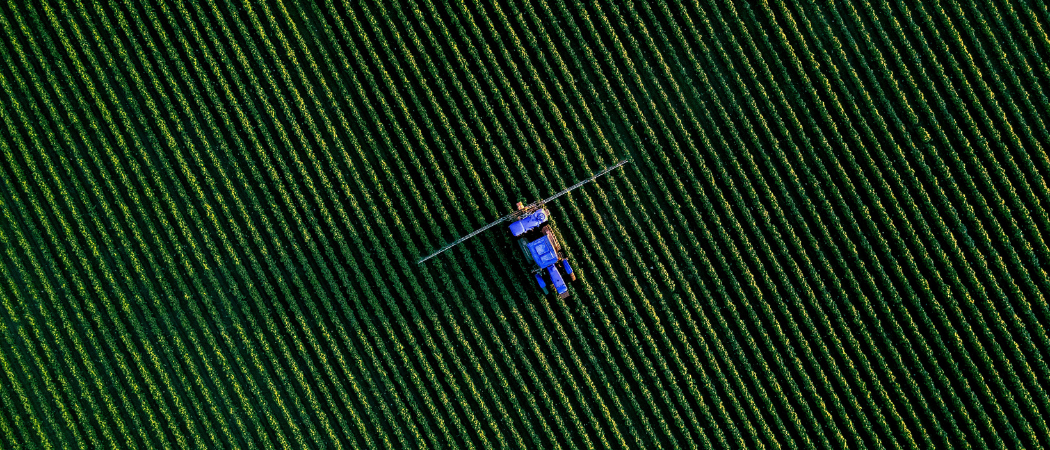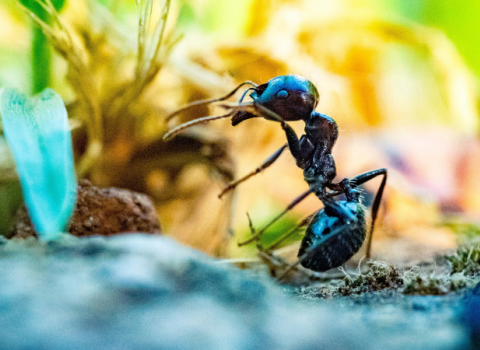Calls for proposals reflect the Commission’s focus on competitiveness, strategic autonomy and long-term sustainability

Photo credits: Marios Gkortsilas / Unsplash
The EU’s competing strategic goals vie for attention in a draft work programme for food, bioeconomy, natural resources, agriculture and environment research projects due to be funded in the final years of Horizon Europe. The calls will release €902.93 million in 2026 and €940.30 million in 2027.
Cluster 6 aims to reduce environmental degradation and improve the management of natural resources, all the while meeting the EU’s climate objectives. It also echoes the European Commission’s target to commit at least 35% of Horizon Europe funding to climate action and 10% to biodiversity research between 2025 and 2027.
But as the document also points out, “this needs to happen while ensuring food and water security and fostering the sustainable prosperity and competitiveness of the EU, taking into account the evolving geopolitical context.”
As in previous plans, the Commission will fund researchers who seek to equip policymakers with increased global knowledge of biodiversity loss and habitat preservation on land and at sea, reduce pollution, develop resilient and green rural, coastal and urban communities, and work on environmentally friendly food production systems.
The final priority implies reinforcing the strategic autonomy and long-term sustainability of agrifood systems, with research projects solicited that address the competitiveness of protein crops, strengthening the EU plant protection ecosystem, developing prototypes of innovations and farming practices to improve the efficient and sustainable use of agricultural inputs, and boosting the commercialisation of food systems microbiome solutions.
In addition, the Commission intends to introduce a call to improve the monitoring of air pollution from agriculture. “Additional efforts are needed in the sector to help reduce the impact [of air pollution] on human health and the environment. To promote the uptake of measures at farm level, better data on their impact and effectiveness are needed,” it writes.
Despite growing pressure on the EU to address the environmental and health risks posed by contaminated water, the Commission has cut a call aimed at managing and removing per- and polyfluoroalkyl substances, pharmaceuticals, pesticides and microplastics to protect surface and groundwater ecosystems. Instead, these topics will be covered in other calls.
Also gone is a call for projects that deploy digital technologies to boost the restoration and resilience of the Mediterranean area, responding to intensifying regional impacts on terrestrial and marine ecosystems due to climate change.
Circularity topics revised
Meanwhile, in anticipation of the EU Circular Economy Act due in 2026, the Commission plans to finance projects that improve the circularity of electronics, construction products, textile waste and other materials. There is, however, no further mention of circular solutions for sustainable staging music and sports events, which appeared in earlier drafts of the work programme.
Some other circularity-related calls have also been removed: one focused on addressing standardisation needs, and another dedicated to supporting local and regional authorities in applying circularity principles to boost water resilience.
Related articles
- Research priorities for final years of Horizon Europe start to fall into place
- Leaked Horizon plans set priorities for biodiversity, food and environment calls
Elsewhere in the latest version of the work programme, the Commission has refined some calls for proposals.
As mentioned in previous drafts, researchers will be asked to address the bioremediation of ecosystems contaminated by conflicts; only now, they are asked to specifically focus on Ukraine. This implies finding biotechnology and nature-based solutions to reduce soil contamination on land and at source due to past and ongoing conflicts.
The eastern European country is also the subject of a new topic dedicated to strengthening forest research.
“The war has caused severe damage to Ukraine’s forests, exacerbated institutional and capacity issues in forestry governance and research and innovation, and highlighted the need for capacity building and knowledge exchange,” the document reads. “Proposals should develop innovative research, policy and capacity-building actions that contribute to the post-war recovery and sustainable transformation of Ukraine’s forest sector.”
Editor’s note: We think it is important to maintain a public record of how Horizon Europe evolves in successive rounds of drafting between the Commission and member states. This is why we publish analyses of draft Horizon Europe work programmes as they become available on our Horizon Papers page.





 A unique international forum for public research organisations and companies to connect their external engagement with strategic interests around their R&D system.
A unique international forum for public research organisations and companies to connect their external engagement with strategic interests around their R&D system.